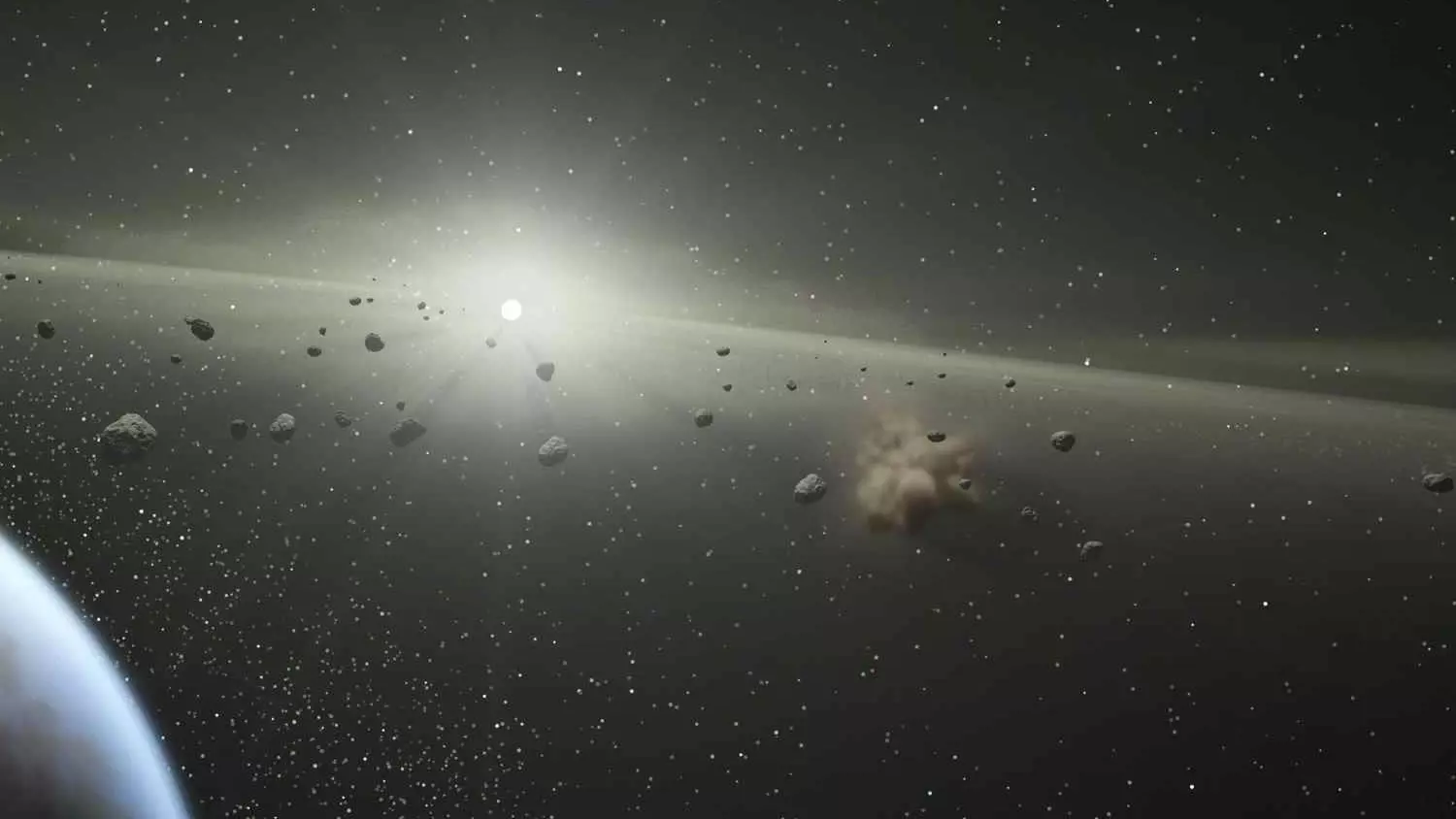[Originally published as Evidence for What? Part 3]
The Basic Ideas
Evolution
In summary, it is important to remember the following about evolutionary presuppositions.
First, evolution assumes slow and gradual change over unimaginable eons—millions of years for life and billions of years for the heavenly universe. Many different explanations, without consensus, are offered to explain how this process took place.
Second, evolution assumes that the organizing force for life is internal and depends on random chance—a presupposition that eliminates any outside intelligent creative force.
Third, evolution dismisses intelligence and assumes random chance to be the mechanism responsible for material reality—a philosophical presupposition that is not drawn from empirical evidence. Evolution, therefore, is an irrational belief. It assumes randomness and chance, not design, to be the governing principle of reality, a view, again, without hard empirical data to support it.
Creation
The basic premise of creation science is that all living and nonliving systems have their origins from an outside source with infinite intelligence. This infinite intelligence is referred to as Christ the Creator, the One who spoke everything into existence.
Long periods of time are not needed. The events of creation are recorded in the Bible’s Genesis account. The physical evidence indicates that the cosmos is the work of an intelligent designer and planner.
Creation, again, is a unique event that cannot be repeated and therefore cannot be observed in the present.
Finally, creation, because it relies on an intelligent Creator, is a rational belief that presupposes the existence of a Creator God.
Is Science Compatible with the Bible?
It is a popular notion that science and the Bible are at odds with one another. The rumor of warfare between the Bible and science can be traced to Thomas Huxley, a late nineteenth century apologist for evolution, who became known as Darwin’s ‘bull dog’ and helped mightily to overthrow the cultural dominance of Christianity. But Huxley, and a long line of successors who have touted Huxley’s mischievous misconception about faith and reason, are at odds with the facts of history.
The truth is that science and Christianity had a great relationship from 1500 to the late 1800s. The early pioneers of modern science had no difficulty in believing in God as their Creator and Savior. They believed in a God who had limitless power and was the source of all intelligence. The works of His hands were worthy to be studied, and to do so was to glorify Him. Indeed, Psalm 111:2 tells us that “Great are the works of the Lord, studied by all who delight in them.”
God affirms the character of creation in Genesis 1 by calling it “good” five times during the week of creation. Finally, when creation is complete, He pronounces His final judgment: It is “very good.”
Francis Bacon, who is often regarded as the father of the scientific method, said,
If one considers the matter rightly, Natural Philosophy [the study of nature] is, after God’s Word, the surest medicine for superstition, and also the most approved nourishment of Faith. And so she is rightly given to Religion as a most faithful handmaiden; the one manifesting the will of God, the other His power.
Early scientists knew that by doing exhaustive research in a particular area of science, they would be fulfilling the great Cultural Mandate, taking dominion of God’s creation as commanded in Genesis 1:28. This is demonstrated by a few examples from great men of science who also embraced belief in God. Henry Morris, in Men of Science: Men of God, lists over 40 great scientists who were professing Christians that believed in the divine authority of God. Among them are:
Johannes Kepler (1571–1630), an astronomer famous for his exhaustive work on planetary motion. He said:
I give you thanks, Creator God, that you have given me this joy in I give you thanks, Creator God, that you have given me this joy in Thy creation, and I rejoice in the works of Your hands. See I have now completed the work to which I was called. In it I have used all the talents You have lent to my spirit.
Blaise Pascal (1623–1662), a great philosopher and mathematician who is considered the father of the science of hydrostatics. He developed the principles of the barometer.
Pascal’s famous wager demonstrates his commitment to Christianity. His wager illustrates that Christian faith is a ‘win-win’ proposition. If a Christian dies and there is no God, “he has lost nothing.” But if a Christian dies and there is a God, heaven, and hell, he has gained everything while “his skeptical friend has lost everything in hell.”
Robert Boyle (1627–1691) is considered the father of physical chemistry, with his monumental work on the mechanistic principles of gases, from which his famous Boyle’s Law was generated. His experimental approach to gasses laid the foundation for atomic theory. Boyle was a devout Christian who had an interest in missions and apologetics. He was famous for his lectures in which he promoted creation as God’s finely tuned clock,
where all things are so skillfully contrived that the engine being once set a-moving, all things proceed according to the Artificer’s first design.
John Ray (1627–1705), a botanist who introduced the first definition of species as being from reproduction. His definition, that parents produce offspring with the same kind of characteristics, is close to the modern definition. He was motivated by Genesis 1 which speaks of “plants yielding seed according to their own kinds” (v. 12). He wrote The Wisdom of God Manifested in the Works of the Creation, which had a great impact and “argued that living things are so complex and so marvelously designed that they must be the creation of a supremely intelligent Creator.”
Isaac Newton (1642–1727), known as one of the greatest scientists of all time, developed the law of universal gravitation, the laws of motion, and calculus into a branch of mathematics. He produced a particle theory to explain how light is emitted and built the first reflecting telescope. Newton understood that the creation came from God, and his basic motivation was to promote a belief in God the Creator. Newton contributed greatly to the foundations of science and believed that God was the ultimate cause.
We account the Scriptures of God to be the most sublime philosophy. I find more sure marks of authenticity in the Bible than in any profane history whatsoever.
Carl Linnaeus (1707–1778) discovered biological taxonomy, which is a classification system still used today. He classified living organisms, using species as the basic unit, based on the biblical idea that organisms do not change with time. He was a committed creationist who believed that God’s creation was good and stable.
Linnaeus was on the right path, and although he initially confused ‘species’ with ‘kind,’ he later recognized that several ‘species’ could belong to a single ‘kind’. He wrote essays on natural theology in support of the idea that man can glorify God by studying His works of creation.
Follow the Evidence with an Open Mind
There are overwhelming testimonies from those who approached the evidence with an open mind and, as a result, started to question the worldview of naturalism. No matter from what perspective they studied the evidence, whether at the molecular level or by gazing at the heavenly bodies, they discovered evidence of a plan and a design. When they freed themselves from the chains of the religion of naturalism and followed the evidence, the mechanism of evolution was abandoned.
Both the biblical creationist movement and the modern Intelligent Design movement have enlisted established scientists who are challenging, with some success, the whole evolutionary thesis.
There is no shortage of compelling evidence to lead one to the verdict that God is the Creator. In Romans 1, Paul states that evidence for God’s creative work in the world “is plain to them” (v. 19) and is “clearly perceived” (v. 20). This indicates that God reveals something of Himself through His creative work. The evidence for God from nature is so compelling, in fact, that people “are without excuse” in denying God (v. 20). The Scripture affirms that a view of the evidence without the bondage of naturalism frees man to see God the Creator.
There’s more: God the Creator is also God our Savior
The Apostle John opens his Gospel with the declaration that “In the beginning was the Word, and the Word was with God, and the Word was God.” The Gospel of John begins just as Genesis 1, with the three words, “In the beginning.” In Genesis 1:3, God states, “Let there be light.”
In John, the “Word” is not only the Creator, but the Word made flesh—Jesus Christ, the source of life and light, the One who brings everlasting life. Genesis 1 and John 1 demonstrate a link between God our Creator and God (Jesus Christ) our Savior. The examination of the evidence for creation should not just bring one to recognize God as Maker, but also bring the honest inquirer to a personal relationship with Christ his Savior, the life and light of the world.







